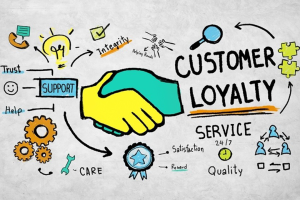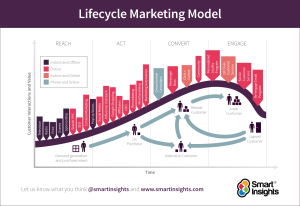
In today’s fast-paced world where attention spans are shrinking, capturing the attention of your target audience has become increasingly challenging. As competition in the tech industry continues to intensify, it is crucial for companies to stand out from the crowd. This is where event marketing comes into play; it offers a unique opportunity to create memorable experiences that leave a lasting impact on attendees.
The Power of Event Marketing
Event marketing is more than just organizing conferences or trade shows. It is a strategic approach that allows tech companies to showcase their products, connect with customers, and build brand awareness. By creating memorable experiences, event marketing enables businesses to engage and connect with their audience on a deeper level. In the digital age, this face-to-face interaction has the power to set businesses apart from their competitors and establish long-lasting relationships.
Planning an Unforgettable Event
1.
Set Clear Objectives
Before diving into event planning, it is essential to define your objectives. Whether you aim to generate leads, increase sales, or strengthen brand recognition, having clear goals in mind will help shape your event strategy.
2.
Understand Your Target Audience
To create a memorable experience, you must understand your target audience’s needs and preferences. Conduct market research to identify their interests, pain points, and expectations. This knowledge will guide you in designing an event that resonates with attendees.
3.
Choose the Right Venue
The right venue can make or break an event. Consider factors such as location, capacity, accessibility, and ambiance. Additionally, ensure that the venue aligns with your brand image and the message you aim to convey.
4.
Engage with Interactive Displays
Integration of cutting-edge technology into your event can significantly enhance the overall experience. Interactive displays, such as virtual reality (VR) booths, augmented reality (AR) experiences, and live demos, allow attendees to immerse themselves in your products and services. This hands-on approach helps create a memorable and impactful event.
5.
Create Networking Opportunities
One of the key benefits of event marketing is the opportunity to network with like-minded individuals. Foster meaningful connections by organizing networking sessions, meetups, or panel discussions. Encourage conversation and collaboration among attendees to create a memorable experience that extends beyond your event.
6.
Utilize Social Media
In today’s digital age, the power of social media cannot be underestimated. Utilize platforms like Facebook, Instagram, and Twitter to generate interest before, during, and after your event. Creating event-specific hashtags, live-streaming sessions, and encouraging attendees to share their experiences online can amplify your event’s impact and reach.
Measuring Success and Continuous Improvement
Your event marketing efforts shouldn’t end once the event is over. To measure success and improve future events, gather feedback from attendees through surveys or post-event evaluations. Analyze key metrics, such as attendance rates, leads generated, and customer satisfaction, to determine the impact of your event.
Additionally, foster continuous improvement by assessing areas of strength and areas for improvement. Apply these insights to refine your event marketing strategy and ensure each subsequent event surpasses the last in terms of delivering memorable experiences.
Conclusion
Event marketing is a powerful tool for tech companies in an increasingly crowded industry. By investing in creating memorable experiences, businesses can engage with their target audience on a deeper level, foster brand loyalty, and differentiate themselves from competitors. Through careful planning, leveraging innovative technology, and fostering meaningful connections, tech businesses can leave a lasting impact and set the stage for future success in the cutthroat world of technology.


